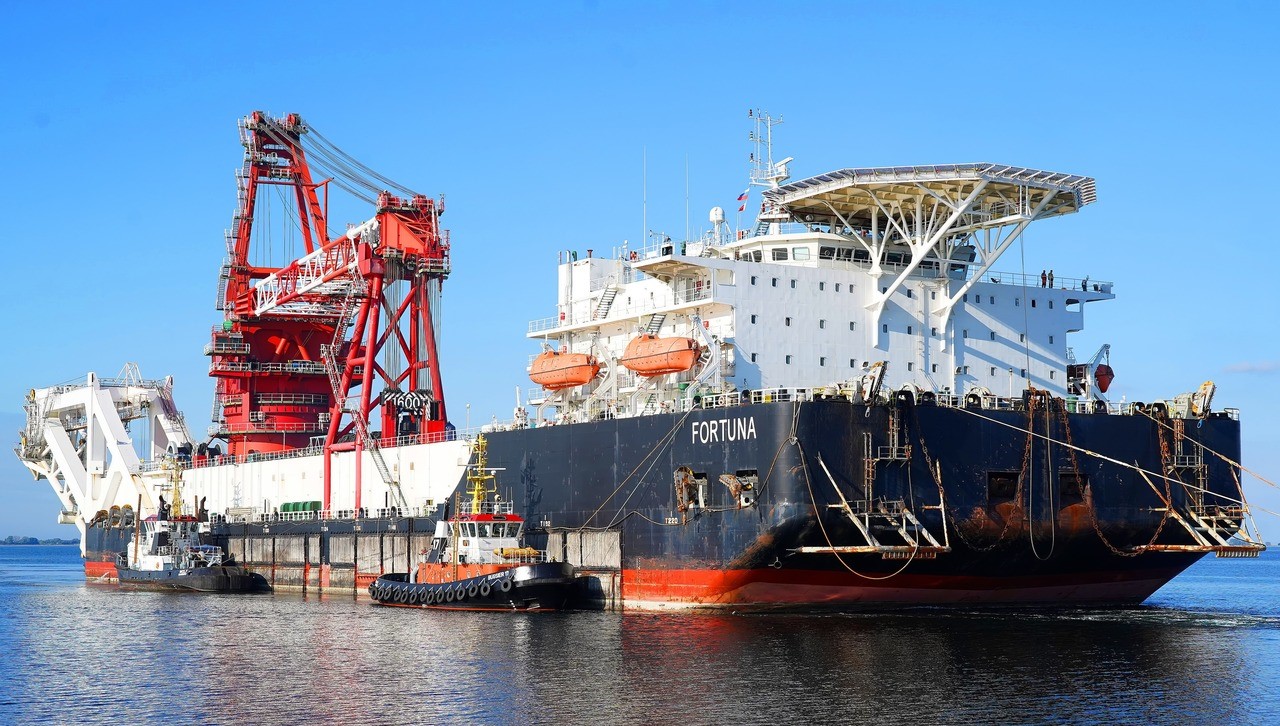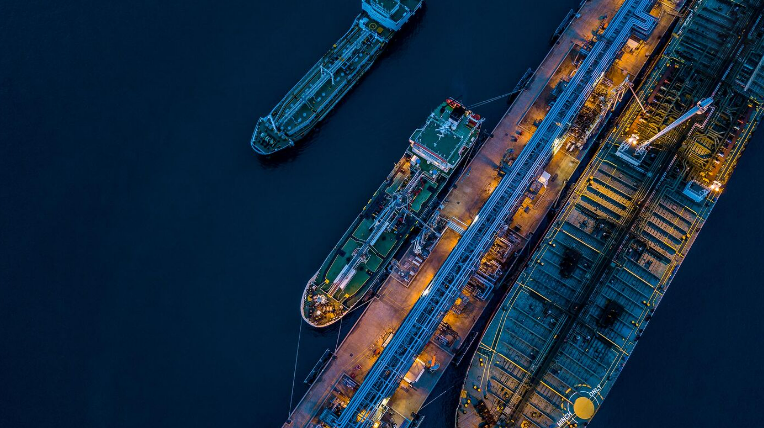United States Sanctions on the Maritime Sector: Comprehensive Impact and Enduring Consequences
Introduction
A sanction operates as a strategic economic lever, utilized by governments to actualize specific national security and foreign policy goals. Noncompliance with sanctions elicits significant repercussions, spanning from monetary fines to legal proceedings. Entities engaged in the global market and in sensitive sectors or regions are particularly susceptible to these risks.
The United States has been known to enact diverse sanctions programs as reactions to perceived national security threats and activities incongruent with international law. Given that the maritime sector is pivotal, constituting a substantial proportion of global trade, it often becomes a medium through which sanctions are levied. The sanctions predominantly aim to monitor and regulate the transit of goods and services, especially those deemed critical, and to mete out punitive measures to countries, entities, or individuals that transgress international norms and standards.
Historically, sanctions have been a salient tool in the United States' foreign policy arsenal, wielded to induce behavioral changes in other nations, address human rights violations, and retaliate against perceived acts of aggression. These multifaceted measures, extending from trade constraints to financial ramifications, endeavor to exert pressure on nations observed to be in contradiction with U.S. interests or international standards. Russia has notably been a focal point of such U.S. initiatives in contemporary years, with maritime sanctions and embargoes being prominently employed in response to an array of Moscow’s undertakings.
The fundamental intent behind U.S. maritime sanctions is to curtail or penalize actions by nations or organizations that breach international norms or accords, encompassing violations related to nuclear non-proliferation, terrorist financing, human rights infringements, among other international concerns. Typically, sanctions target entities such as ship owners, operators, insurers, port operators, and various maritime service providers. These sanctions can also preclude certain vessels or companies from offering services to American entities or from operating within American territorial waters.
The inception of U.S. maritime sanctions against Russia can be traced back to the 2014 annexation of Crimea. This action, met with widespread international censure, saw the United States spearheading the imposition of retributive measures against Russia to thwart further bellicose endeavors. Given Russia’s significant stake in the global energy landscape, a considerable portion of the sanctions framework has centered around restricting maritime energy exports.
In 2018, subsequent to the maritime skirmish between Russia and Ukraine in the Kerch Strait, the United States instituted sanctions targeting the vessels implicated in the conflict. The sanctions were extended to individuals and entities associated with the apprehension of Ukrainian naval personnel and the confiscation of their vessels.
On May 14, 2020, the United States Department of State, the Office of Foreign Assets Control (OFAC) of the United States Department of the Treasury, and the United States Coast Guard collectively promulgated a global advisory. This advisory was destined to alert entities within the maritime, energy, and metals sectors about the prevalence of deceptive maritime practices.
Post Russia's incursion into Ukraine in 2022, these sanctions protocols have undergone intensification, manifesting in escalated penalties and amplified restrictions on trade in goods with sanctioned Russian entities. These sanctions have consequently exacerbated tensions between Russia and the European Union (EU), given the frequent intersections of Russia's maritime endeavors with European interests, predominantly within the realms of the Baltic Sea and the North Atlantic. Although the EU inaugurates its sanctions autonomously, it often synchronizes with the United States to fortify the efficacy of these sanctions.

The Nord Stream 2 gas pipeline, a monumental project poised to augment Russia's gas export capacity to Germany through the Baltic Sea, colloquially termed the Nord Stream 2 sanctions, has encountered formidable resistance from the United States. Perturbed by Europe's burgeoning reliance on Russian gas, the US has invoked sanctions on entities engaged in the construction of the pipeline. The pipeline, a prospective conduit directly linking Russia to Germany via the Baltic Sea, has been a locus of contention. Despite the absence of a direct maritime embargo, the United States has sanctioned entities implicated in the construction and financing of the pipeline, voicing apprehensions regarding Europe's energy sovereignty and the prospective revenues potentiated to bolster Russia's military aspirations.
Nations including North Korea and Iran have been subjected to stringent maritime sanctions owing to their nuclear endeavors and other related activities. Entities affiliated with nations like Syria, Russia, and Venezuela have similarly incurred sanctions pertaining to their maritime pursuits. The imposition of such sanctions is indicative of the extensive global reach and impact of maritime sanctions in enforcing international norms and addressing perceived threats to security.
OFAC Transactions
These sanctions are orchestrated by the Office of Foreign Assets Control (OFAC) within the United States Department of the Treasury and may encompass restrictions or prohibitions relating to trade, financial transactions, investments, or other forms of interactions with delineated entities.
OFAC sustains a roster of Specially Designated Nationals (SDNs) constituted by parties precluded under its sanctions regime. The roster, known as the OFAC SDN list, undergoes regular updates and is accessible for scrutiny on the OFAC website or via third-party aggregators such as Sanctions Explorer. Entities falling within the jurisdiction of the United States are precluded from participating in almost all transactions involving entities enlisted in the SDN list. This list amalgamates individuals, companies, and vessels presumed to be directly or indirectly aiding and abetting North Korean sanctions evasion and proliferation endeavors.
It has been observed that violators of sanctions often employ foreign intermediaries to obscure their affiliations to sanctioned entities or jurisdictions more effectively. In the illustrative case at hand, the transaction was executed by an individual of Indonesian origin, who was enlisted into the stratagem by the president of the OFAC-designated North Korean bank, Jinmyong Joint Bank, and introduced by diplomatic personnel stationed at the North Korean Embassy in Jakarta. The intermediary utilized a company based in Hong Kong to charter the recipient vessel, the Ken Orchid, facilitating the ship-to-ship transfer.
Secondary Implications of OFAC Sanctions:
Secondary sanctions play a pivotal role in reinforcing the ramifications of primary sanctions. These are particularly levied against individuals and entities operating outside the jurisdiction of the United States, serving as a mechanism to dissuade international entities from extending support to actors facing sanctions. Non-US entities found contravening OFAC secondary sanctions might encounter severe penalties including the forfeiture of access to the US financial system.
OFAC 50% Ownership Rule:
This rule accentuates the importance of meticulous due diligence within corporate networks. OFAC transaction prohibitions extend to any entity wherein an OFAC-designated party holds a 50% or greater ownership interest. Consequently, entities and vessels, even if not explicitly listed on the OFAC SDN list, may fall under sanctions predicated on their ownership statuses, rendering ownership due diligence imperative for stringent compliance with OFAC stipulations.
The Office of Foreign Assets Control (OFAC) has instituted sanctions against Russia to counter a spectrum of illicit and malevolent activities on a global scale.
1- Prohibited Transactions: US citizens and companies are explicitly barred from conducting transactions with Russian entities or citizens.
2- Restricted Items: The facilitation of the transit of specified goods (characterized by HS code) into Russia and Belarus without proper authorization is prohibited for US entities and citizens.
Inclusion of Foreign Entities:
These prohibitions and restrictions are not exclusive to US entities but are also applicable to companies engaged in transactions with Russian entities, classifying them under secondary sanctions. The encompassing restrictions include the following HS code sections for Russia and Belarus:
84: Pertaining to nuclear reactors, machinery, and respective parts.
85: Encompassing electrical machinery, equipment, and related parts.
90: Incorporating optical, photographic, and medical instruments and their accessories.
Additional restrained products encompass chemicals, luxury goods, such as alcoholic beverages and leather products, among others.

3- Oil Price Ceiling:
Member companies of the Coalition, including but not limited to Australia, Canada, the European Union, Japan, the United Kingdom, and the United States of America, engaged in oil transport services originating in Russia are mandated to adhere to a purchase price ceiling of $60 per barrel. This ceiling is obligatory for companies operational within Coalition nations, ensuring the continued provision of transport services contingent upon adherence to the stipulated price ceiling.
Implementation of OFAC Rules in Diverse Service Areas:
Within this purview, the rule is applicable to entities delivering services encompassing flag registration, trading/brokerage, financing, insurance and reinsurance, transport, and customs clearance. Barring few exceptions, the member nations of the Coalition predominantly abstain from importing Russian petroleum derivatives. Companies within the Coalition providing encapsulated services are mandated to procure and preserve documentation validating the adherence to the stipulated ceiling price for Russian oil or petroleum products. Oil undergoing substantial transformation is exempt from this price limitation. The requisite documentation should meticulously detail and invoice transport, freight, customs, insurance, and other associated costs, ensuring these are levied at commercially viable rates.
International Compliance and Enhanced Measures:
Post the consensus between the European Union and seven preeminent industrial nations to restrain Western insurers from insuring vessels intending to trade Russian oil exceeding $60 per barrel, Turkey, in December 2022, instituted a directive necessitating oil tankers to furnish comprehensive insurance proof while transiting through its straits or docking at Turkish ports. This encompasses the Istanbul, Dardanelles, and Marmara seas. The mandated coverage, termed as Protection and Indemnity Insurance (P&I), is instrumental in facilitating the organized transit of oil tankers across global sea lanes.
With the advent of the price ceiling on oil acquisitions from Russia, Coalition nations have inhibited services facilitating maritime transport, including insurance, in instances of ceiling price violations. Renowned insurance entities like Lloyd's of London, under this pricing regimen, are restrained from insuring pertinent vessels conveying Russian oil, irrespective of the destination, unless traded at the ceiling price. The European Union has promulgated that any vessel not sporting an EU flag and contravening the price cap will be subjected to a 90-day prohibition from Western shipping.
Categories of Maritime Sanctions:
1. Energy Sector:
The energy sector of Russia stands as a paramount target of US sanctions. Vessels implicated in energy transfers are frequently susceptible to US sanctions, constraining national access to the energy market and inducing price fluctuations. The sanctions focus on enterprises, technologies, and distinct projects, like deepwater exploration and Arctic drilling, prohibiting US entities from endorsing such initiatives. This hampers the collaborative endeavors between US and Russian energy firms. Given the proclivity of Russian state-owned energy entities to deploy offshore platforms for extraction, such sanctions impose substantial limitations. The provision of goods, services, or technology indispensable for such ventures by US companies is majorly proscribed.
2. Military Operations:
The US has administered sanctions on Russian naval sectors, including shipyards and manufacturers of naval equipment, aiming to hinder the operational capacity and modernization endeavors of the Russian navy. Such sanctions also disincentivize international entities from acquiring Russian naval military technology.
3. Port Access:
In 2017, the US sanctioned certain transactions with Russian ports in the Sea of Azov due to Russia’s escalating maritime aggression. Ports in Crimea and other annexed regions specifically face restrictions, barring American and allied ships from entering or engaging in commerce. Subsequent to March 17, 2022, vessels accessing Russian ports or territorial waters are mandated to inform their respective clubs, with non-compliance risking invalidation of the vessel’s P&I cover and potential claim denials. Russian-flagged vessels undergo meticulous inspection and may face restrictions on suspected illicit involvements.
4. Carriage of Sanctioned Goods by Sea:
Sanctions predominantly target the maritime conveyance of weaponry, nuclear-related technology, or materials. Vessels implicated in these transports are subjected to stringent penalties and potential inclusion on the SDN list, affecting global operations.
5. Shipping Companies and Vessels:
Several Russian shipping entities and vessels have been sanctioned by the US Treasury Department for participating in oil transportation from Russia or endorsing other sanctionable activities. Companies like Sovfracht face direct sanctions due to their role in supporting Crimea's annexation and aiding Syrian government forces.
6. Restrictions on Oil Projects and Technologies:
US sanctions compromise Russia’s prowess in developing Arctic offshore, deepwater, and shale oil projects, impacting long-term oil production and exploitation of energy reserves. Restrictions are imposed on the transfer of specific goods, services, and technologies to projects capable of producing oil in Russia or within its maritime domain.
7. Shipbuilding Sanctions:
Post the allegations of interference in the 2016 US presidential election, sanctions were enacted on various sectors of the Russian economy, including shipping and shipbuilding, affecting Russia’s shipbuilding capabilities especially for vessels designed for Arctic offshore drilling. This obstructs Russia’s ambition to capitalize on the Northern Sea Route for diverse trade and energy initiatives.
The impact of the sanctions
1-Economic Impact:
a) Russian Economy:
- Sanctions, especially on the energy sector, have had a considerable economic impact on Russia, constraining its revenues, which are highly dependent on oil and gas exports.
- Russian shipping companies face substantial challenges in accessing international markets and securing insurance and financing.
- The restrictions have impelled Russia to innovate and invest more in domestic technologies, especially in the maritime and energy sectors.
b) Western Companies:
While aiming to curb Russia's aggressive stances, sanctions also pose economic repercussions for US and European companies involved in major energy projects with Russia, potentially leading to losses and strained relations.
2-Strategic and Geopolitical Implications:
a) Shift towards China:
The sanctions have prompted Russia to seek alliances elsewhere, notably with China, altering geopolitical dynamics and potentially challenging US interests in the Asia-Pacific, particularly in contested regions like the South China Sea.
b) Northern Sea Route Exploration:
Russia's exploration of the Northern Sea Route to connect the Atlantic and Pacific Oceans showcases its intent to minimize reliance on Western-controlled sea lanes, indicating a strategic repositioning in its maritime logistics.
3) Projection of Sea Power:
By targeting Russia's maritime sector, the US aims to inhibit Russia's naval capabilities and its ability to project power and influence in sensitive regions such as the Black Sea and the Baltic Sea, reflecting the strategic essence of these sanctions.
4) Global Trade and Technological Development:
a) Impact on Global Trade:
The restrictions on Russian ports and shipping companies reverberate globally, potentially disrupting global trade patterns, causing diversions and affecting international trade relations.
Access restrictions to advanced Western technology for offshore and deepwater drilling have stymied Russia's endeavors to exploit its offshore oil reserves fully, signaling a technology gap propelled by sanctions.
b) Indigenous Technological Advancement:
The constraints have galvanized Russia's efforts to develop indigenous technologies to circumvent the sanctions, indicating a drive towards self-reliance in critical sectors.
Conclusion:
Sanctions serve as a geopolitical tool aimed at altering state behavior and achieving strategic objectives. However, the impact of sanctions is not unidirectional. They shape economic landscapes, influence international relations, alter strategic orientations, and can potentially instigate innovation and partnerships. The ramifications of maritime sanctions against Russia elucidate the intricate interplay of economics, strategy, and geopolitics in the contemporary international system, underscoring the necessity for nuanced approaches in addressing international conflicts and disputes.
Absolutely, the consequences of US sanctions on the maritime sector are considerable and multilayered. They extend beyond immediate economic strain on the targeted entities to encompass broad-ranging effects on global maritime operations and worldwide economic structures.
The Financial Crimes Enforcement Network (FinCEN) is essentially advising all financial institutions to uphold a high level of alertness to avoid violating any of the extensive sanctions and restrictions that the United States has imposed due to the ongoing actions of the Russian Federation in Ukraine. This implies that financial institutions should conduct meticulous due diligence and continuous monitoring to ensure no transactions or dealings are in breach of these sanctions and restrictions, thus avoiding legal repercussions and maintaining the integrity and compliance of the institution with international law and regulations.
This is crucial as non-compliance with such sanctions and restrictions could result in severe penalties and reputational damage to the financial institutions involved, and it underscores the importance of rigorous compliance mechanisms and frameworks in navigating international finance and trade in the context of geopolitical tensions and conflicts.
Referenced Resources:
1-For detailed information on luxury goods sanctions for Russia and Belarus, refer to Appendix 5 to Chapter 746 of the ECFR.
2-For the complete list of restricted goods in the industrial sector, refer to Annexes 2 and 4, Section 746 of the ECFR.
3-Av. Cem Congar provides a legal evaluation of Turkey's request for insurance confirmation letters of Russian oil tankers on the April 2023 issue of Deniz Bülten Dergisi.
4-Centre for Advanced Defence Studies (C4ADS) documents
5-31 U.S.C. § 5312(a)(2); 31 CFR § 1010.100(t).

















YAZIYA YORUM KAT
Türkçe karakter kullanılmayan ve büyük harflerle yazılmış yorumlar onaylanmamaktadır.